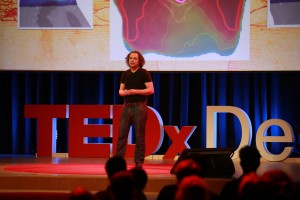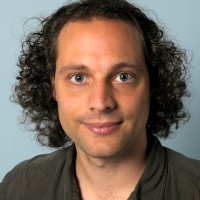 “Each year around 15 million people are being diagnosed with cancer. Radiation therapy can cure some of them, but unfortunately has side-effects,” said Sebastiaan Breedveld. He thinks that rather than developing new technologies, using the current ones to their full potential should be the goal.
“Each year around 15 million people are being diagnosed with cancer. Radiation therapy can cure some of them, but unfortunately has side-effects,” said Sebastiaan Breedveld. He thinks that rather than developing new technologies, using the current ones to their full potential should be the goal.
Born and raised in Rotterdam, Breedveld has been passionate about healthcare and science since he was young. Majoring in mathematics at the Delft University of Technology, he still wanted to connect his knowledge to healthcare. At Erasmus Medical Centre, he continued with a PhD in medical physics, focusing on radiation therapy.
Radiation therapy cures patients by focusing a large dose on the tumor. Close to it, however, are healthy organs which could get damaged as well. This can significantly reduce the quality of life. Based on a patient-specific wish list of 20 to 30 items, an experienced physician has to decide upon the treatment. The goal: retaining the best quality of life possible. Does a human being have to decide this? “Some will be treated worse. And this could be you,” he said.
Costs limit the development possibilities of new technologies. The solution: planning by automation. Mathematical models are faster at evaluating all possible treatment plans and yield results at least as good as the physicians’ ones. Breedveld stated that next to new ways of treating patients, we have to improve quality without increasing costs: “A win-win-win situation.”

